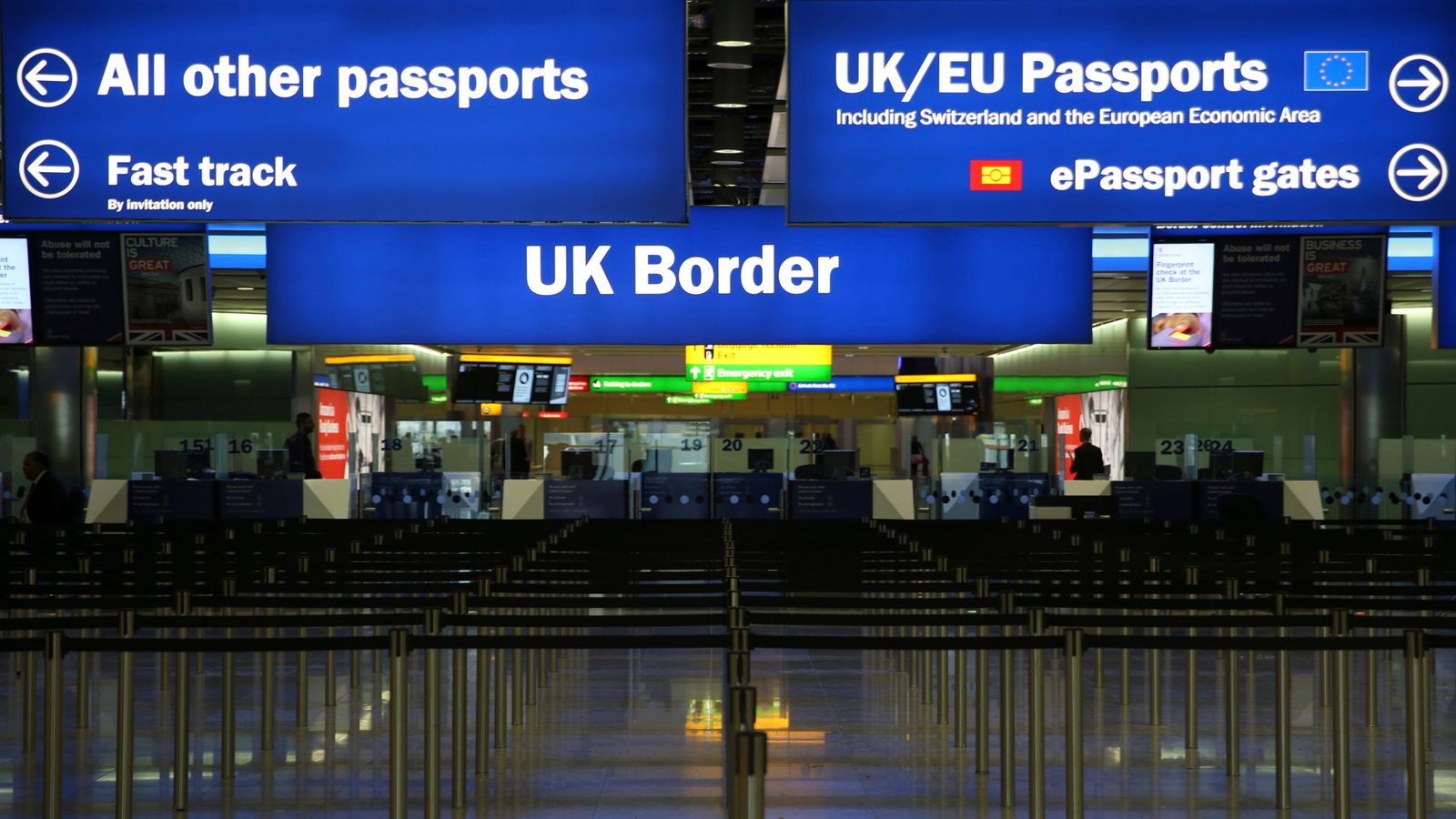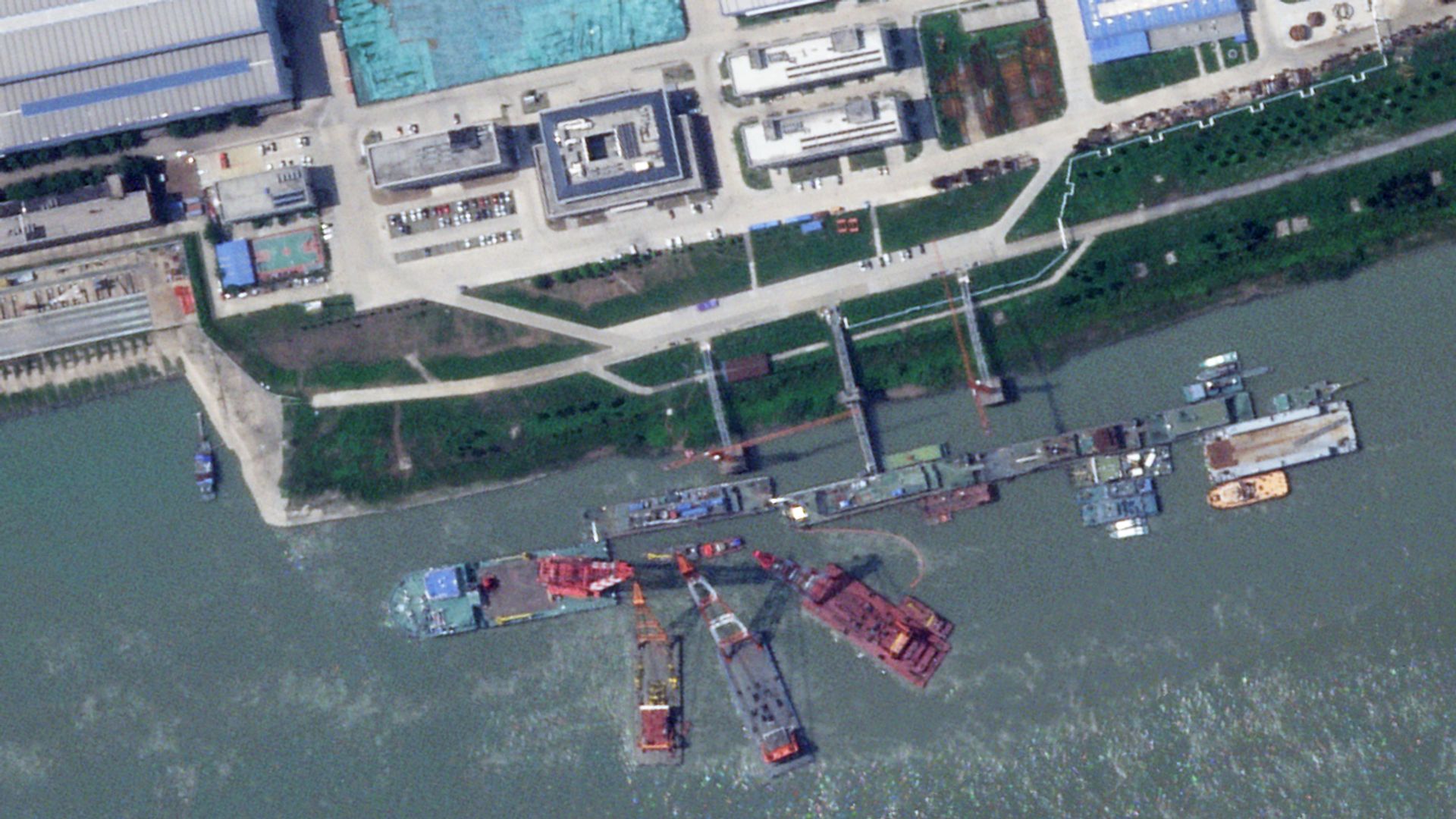A new plan to cut immigration has been announced by the government after net migration hit 745,000 last year.
Under the changes, 300,000 people who came to the UK last year would not be have been able to.
The five-point plan includes measures on health and care visas, skilled worker visas, family visas, the shortage occupation list and student visas.
Sky News breaks down what each point means.
People applying for the skilled worker visa must earn a minimum of £38,700.
Currently, the threshold is whatever is highest out of £26,200 per year, £10.75 per hour or the “going rate” for your job.
The increase from £38,700 to £26,200 is a jump of 47.7%
The new threshold is above the median salary, which was £34,963 in April 2023 for full-time workers, according to the Office for National Statistics (ONS).
This means more than half of the population would not meet the threshold.
The government said it was increasing the threshold to “encourage businesses to look to British talent first” and deter them from “over-relying on migration”.
Health and care workers will still be able to earn less than £38,700 before applying for the route.
Workers on national pay scales, such as teachers, will also be exempt.
The change will come in next spring but the exact date has not been announced.
One couple impacted by the changes are British student Martha Cullen Close, 21, and Ysmael Paredes, 24, from Mexico.
She told the PA news agency the changes would stop her boyfriend joining her in the UK.
She said: “We had plans for him to come and move to the UK because Mexico is so dangerous… so he doesn’t want to live there anyway.
“Now we’re just stuck, I don’t know what we’re meant to do, really.”
She said she is now considering leaving the UK.
“Obviously, that’s not my ideal situation. I don’t want to do that. I want to be able to work and live in England, but I can’t.”
Please use Chrome browser for a more accessible video player
The amount people must be earning to bring over a family member or partner from abroad will also increase to £38,700.
The current threshold is £18,700.
Family visas are only open to British or Irish citizens, people with settled or pre-settled status or refugees with protection status.
About 70,000 people came to the UK on family visas in the year ending June 2023 – up from 61,000 the previous year.
Overseas care workers will no longer be able to bring family dependants with them.
A dependant is defined as a husband or wife, civil partner or unmarried partner, and children under 18.
In the year ending September 2023, 101,000 health and care visas were issued, with an estimated 120,000 visas granted to dependants.
The government said the change was to end the “abuse of the health and care visa”.
Care firms that want to sponsor people for visa applications will need to be regulated by the Care Quality Commission.
Read more from Sky News:
Call for a rethink of care worker visas
The plight of the care sector and the row over visas
There are currently lower salary requirements for jobs on the shortage occupation list – workers can be paid 20% less than the going rate and qualify for a skilled worker visa.
The idea is this attracts skilled workers to vacancies employers are struggling to fill.
The discount will be scrapped under the government’s new plan, to “crackdown on cut-price labour from overseas”.
The types of jobs on the list will also be reviewed and reduced.
Graduate visas allow people to stay in the UK for two years after successfully finishing a course.
The graduate route will be reviewed “to prevent abuse and protect the integrity and quality of UK higher education”, the government said.
It follows a clamp-down earlier this year on overseas students bringing family to the UK.
Following the tightening of who can bring in family members on student visas earlier this year, the government will ask the Migration Advisory Committee to review the graduate route “to prevent abuse and protect the integrity and quality of UK higher education”.
Be the first to get Breaking News
Install the Sky News app for free
The annual fee visa holders must pay to use the NHS – known as the immigration health surcharge – will rise by 66%, from £624 to £1,035.
The increase will come in no earlier than 16 January 2024.
This change was announced in July, when the government also said visa application fees would go up.
On 4 October, work and visit visa fees went up by 15%, family visas, settlement and citizenship by 20%, and student visas by 35%.








